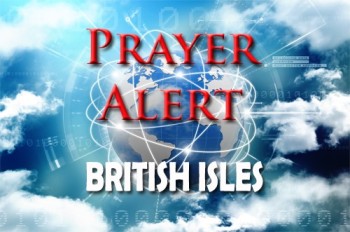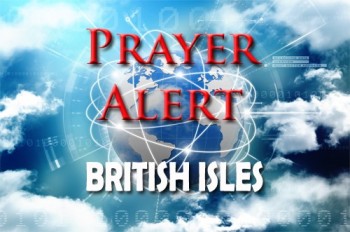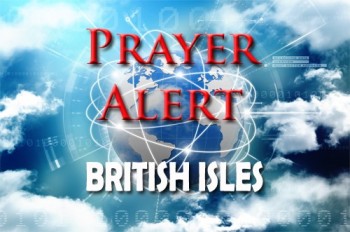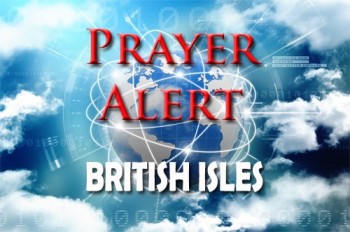Displaying items by tag: criminals
80 sham firms call a residential street home
In three months more than eighty fake companies have been registered to properties in Henry Drive, Leigh-on-Sea, making it look like a thriving business hub specialising in wholesale clothing, with entrepreneurs from across Europe choosing it as their operations base. But the paperwork lies. Each business says it sells clothes and has a single company officer described as an ‘entrepreneur’ living in either Italy, Georgia, Germany, France or Morocco in dubious addresses like an empty Moroccan building lot or a French religious meeting hall. The mass registering of these firms is the work of criminal gangs using sham companies for money laundering or obtaining bank loans before shutting them down. Companies House charges £12 for registering an internet business or business merger. If the company’s paperwork is properly filed and signed and the fee paid, it must be registered.
Prisoners and faith communities
The Prison Advice and Care Trust (Pact) is a Catholic charity providing support for prisoners and their families, by helping people make a fresh start and minimising the harm caused by imprisonment. It removes barriers between prisoners and the outside world, and influences policy and legislation in most prisons in England and Wales. In a bid to crack down on crime, Boris Johnson wants to create 10,000 extra prison places and end automatic early releases of prisoners before they finish their sentences. However Pact believes that the key for successful rehabilitation comes from connections with faith communities. It says the PM's solution is a plaster for a bullet wound: ‘If young people carry knives, because they're frightened and others are carrying knives, they're not going to stop carrying a knife, because the sentence is going to be longer. They’ll stop carrying a knife if they feel safe in their communities.’ See
Churches’ lead stolen
St Mary's church, Pelham, Hertfordshire had most of the lead stolen from its roof on 15/16 June. The church dates back to the 1100s, and the stolen lead is valued at £220,000. Police have issued a warning to other churches in the area. Last month a church in Lincolnshire had twelve tons of lead roof sheets stolen. It was rolled up and thrown onto the grass below. The criminals were disturbed at about 3am and fled in two vehicles. The lead was marked with microdot markers that survive extreme heat, cannot be destroyed, and are easily detected with a UV torch. Metal crime incidents for the year ending March 2018 increased by 25%, and more metal thefts are reported every day. See
Churches’ lead stolen
St Mary's church, Pelham, Hertfordshire had most of the lead stolen from its roof on 15/16 June. The church dates back to the 1100s, and the stolen lead is valued at £220,000. Police have issued a warning to other churches in the area. Last month a church in Lincolnshire had twelve tons of lead roof sheets stolen. It was rolled up and thrown onto the grass below. The criminals were disturbed at about 3am and fled in two vehicles. The lead was marked with microdot markers that survive extreme heat, cannot be destroyed, and are easily detected with a UV torch. Metal crime incidents for the year ending March 2018 increased by 25%, and more metal thefts are reported every day. See
Venezuela: backstory to crisis
Juan Guaidó and Nicolás Maduro both claim to be president. While resolving their standoff over leadership is critical, finding prosperous and stable paths forward requires taming criminal non-state groups controlling local territory and illicit industries across Venezuela, often operating with overlapping allegiances and activities. Well-armed neighbourhood criminal gangs called colectivos have been co-opted by the regime to suppress dissent in the capital and work with other quasi-official repression squads that it has created as an insurance against fickle loyalties of rank and file soldiers and police. There are also regional criminal syndicates controlling illegal mining and drug trafficking industries, which operate alongside local or national officials and transnational crime networks. If a resolution is achieved between Guaidó and Maduro, these groups will want to expand their positions and exploit any local power vacuums created. Pope Francis has expressed an openness to mediate in Venezuela’s political situation if both sides are willing. See
Libya: slavery threatens refugees
Desperate West African migrants, fleeing joblessness and violence and hoping for a better life in Europe, sometimes pay exorbitant fees to smugglers to get to Libya (a launchpad for Italy). Few are aware of Libya’s current lawless condition. Libya could be the end of their journey and their lives. Slavery is openly practised. The UN International Organisation for Migration reported the situation being dire. ‘Betrayed by ruthless smugglers, kidnapped off of the streets, sub-Saharan migrants are ruthlessly exploited by money-hungry Arabs. Some are sold; others are imprisoned. Escapees describe squalid conditions in prison, little food, and always forced labour. Captors regularly call home demanding a ransom. Men whose ransoms are not quickly paid are executed. With meagre food and unsanitary conditions, the death rate is rampant.’ Aid agencies have repatriated 1,500 people so far this year. Aware of this, criminals now pose as fraudulent aid groups.





